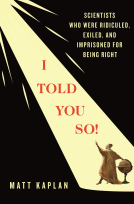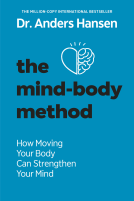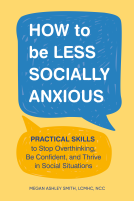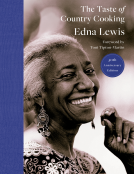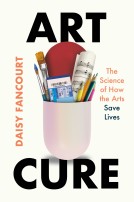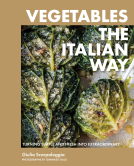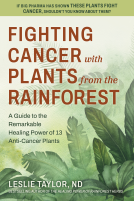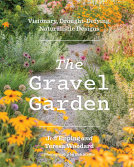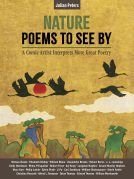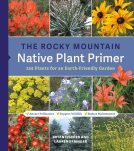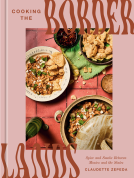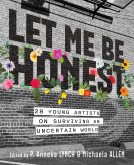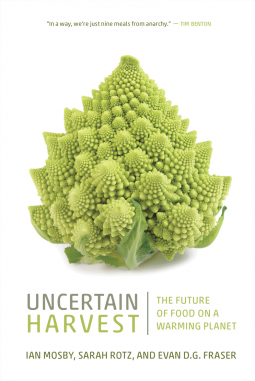
Uncertain Harvest
The Future of Food on a Warming Planet
by Ian Mosby; Sarah Rotz; Evan D.G. Fraser
This title was previously available on NetGalley and is now archived.
Send NetGalley books directly to your Kindle or Kindle app
1
To read on a Kindle or Kindle app, please add kindle@netgalley.com as an approved email address to receive files in your Amazon account. Click here for step-by-step instructions.
2
Also find your Kindle email address within your Amazon account, and enter it here.
Pub Date May 09 2020 | Archive Date Jul 10 2020
NYU Press | University of Regina Press
Talking about this book? Use #UncertainHarvest #NetGalley. More hashtag tips!
Description
A menu for an edible future.
In a world expected to reach a staggering population of 10 billion by 2050, and with global temperatures rising fast, humanity must fundamentally change the way it grows and consumes food. Uncertain Harvest brings together scientists, chefs, activists, entrepreneurs, farmers, philosophers, and engineers working on the global future of food to answer questions on how to make a more equitable, safe, sustainable, and plentiful food future.
Navigating cutting-edge research on the science, culture, and economics of food, Ian Mosby, Sarah Rotz, and Evan D.G. Fraser present a roadmap for a global food policy, while examining eight foods that could save us: algae, caribou, kale, millet, tuna, crickets, milk, and rice.
Available Editions
| EDITION | Other Format |
| ISBN | 9780889777200 |
| PRICE | $24.95 (USD) |
| PAGES | 256 |
Links
Average rating from 10 members
Featured Reviews
This was a fascinating and comprehensive insight into global food chains and the necessity of ensuring that food supplies are secure in the future of a constantly expanding world. This book covered a lot of angles, and it made me very damn happy to be a vegan when I read the segment on the sushi shop analysis. With that being said, it doesn't come as a shock that such issues would arise- when there are so many people to feed and so little done about equitable access, of course there will be misdirection.
I appreciated the fact that this book doesn't give a one-size-fits-all solution to the issues that we have in the world regarding food. The first chapter examining Indigenous food access was particularly notable and draws attention to something that First Nations Peoples have been saying since time immemorial. There's a lot to be learned from Indigenous peoples and their management of food, both in terms of sustainability and access, and this book lays that out really well.
The chapter on beef brings up the salient point that maybe vegetarian eating doesn't have to be to directly replace meat, but instead to ensure that vegetables have their time in the limelight. There's a lot more focus on making veg more prominent in dishes now which is really admirable, and I can only hope that continues on.
This book is really fascinating and very much well worth the read, especially if you have any interest in sustainability and learning exactly where your food comes from. The segment on fish substitution is especially important, and may indeed put you off seafood (and other meats) for life. A really interesting look at an issue that impacts all of us.
The future of food effects us all. It seems that every spring, a new stellar book arrives on the scene which presents us with different stories about the aspects of the changing ways on growing foods. In 2018, Paul Shapiro expanded on the new ways of growing animal based products in his 'Clean Meat', followed in 2019 by Amanda Littles 'Fate of Food',
This year, a group of scholars of different disciplines and at the heart of Canadian Food Science got together to tell us their stories. In 7 different chapters, they mostly travel domestically and explain impact of climate change an possible ways out. These typically include changes in policy, technology or consumer behavior.
Certainly an interesting read, especially for the participants of the Canadian food supply chain, future food scientists and others concerned about our food supply chain, especially in the current changing times.
Thank you to NetGalley and University of Regina (NYU) Press for sending me a free ARC copy in exchange for an honest review.
Last year I read The Fate of Food by Amanda Little and it turned out to be one of my favorite books of 2019. The Fate of Food is a fascinating look into current, global issues within the food industry and the various approaches in the works for solving these issues in the future. Ultimately, The Fate of Food asks you this: is our current path sustainable, and if not, how can we fix it?
So, you can imagine how excited I was to continue that conversation with Uncertain Harvest. As it turns out, I really enjoy reading about the future of our food industry. Who knew, right?
Uncertain Harvest is a look into the complexity of our current global food system and questions whether or not our current system is sustainable. If not, how might we build a global food system that’s more resilient, adaptable, equitable, and less wasteful? The focus is on Canada (understandable, considering the authors are Canadian), but that does not make it inaccessible to an American audience.
The real strength of this book, I found, was the questions it made me ask beyond the text. Here are just a few of the questions I found myself asking:
- Do you believe our current global food system is sustainable (environmentally, socially, economically, morally, etc) for our current, growing population?
- What does it mean to have a sustainable food future?
- How many days’ worth of food do you, on average, keep in your home? Also, has the current global pandemic changed this for you?
- How much of the food in your home was locally grown? How much of that food do you know exactly where it came from (city and country)? How much of that food did you purchase when it was actually in season?
- What will we be eating in the future? And how are we going to produce it?
- Two of my favorite questions brought up in Uncertain Harvest: What will we find in the grocery store of the future? Why should we even have a grocery store?
- What does food security mean to you?
- How familiar are you with the topic of “food fraud”? Do you think you’ve ever eaten or purchased an item that was incorrectly - or misleadingly - labeled?
- What eating habits of yours are cultural? Which were passed down through your family?
- Which crops do you think will be essential components of our future?
If you find yourself wanting to explore any of this questions, I would recommend picking up Uncertain Harvest. Not all of them are addressed within its pages (some of those questions were things I asked myself), but it explores so much more.
For example, Uncertain Harvest addresses many aspects that are generally overlooked (at least, in my experience), and I appreciated the time spent on showcasing multiple points of view and bringing up several points I was previously unfamiliar with. In one chapter, Uncertain Harvest takes a look at the increase in technological advancements available to farmers. Can this technology provide food security for our future? Or will an increased reliance on technology mean the decrease in ecological knowledge that farmers currently are stewards of? What about the costs of technology, such as how expensive they can be and that sometimes only large-scale corporations can afford them and farmers must substantially increase their debt in order to stay afloat?
As you can imagine, Uncertain Harvest takes a look at many hot topics, such as beef consumption. I really appreciated how the authors didn’t pick one solution when they discussed a topic and they didn’t necessarily agree with each other with what solutions might be the most effective for a more sustainable food system.
For example, with beef consumption, Uncertain Harvest looks at beef’s relatively large carbon footprint. One reason for this is beef is associated with large amounts of deforestation (primarily in places such as South America). Uncertain Harvest then discusses how environmentally sustainable farms help minimize beef’s overall impact but they also generally are smaller farms with slower-finishing animals (to market) and higher costs for consumers. So, Uncertain Harvest asks, will our current beef industry (exactly as it is today) be able to support a growing global population, with more people consuming more beef as globally the standard of living increases? If the beef industry is able to adapt to such an increased demand, what might be the costs of the beef industry growing? Or, might the beef industry shrink from its current scale and become a luxury item available only to the richest who can afford its expense? Uncertain Harvest doesn’t necessarily pick a solution, but like I mentioned earlier, its strength is in getting you to think about multiple aspects of a topic.
Beyond hot topic issues, Uncertain Harvest also looks at topics that don’t get as much press. For example, the sushi experiment the authors ran while discussing food fraud will stick with me for a long time and has made me more conscious about food labels and the products I purchase.
In all, this book has made me ask myself a lot of questions and like The Fate of Food, there are many things that will continue to stick with me. Thank you again to NetGalley and University of Regina (NYU) Press for the privilege of reviewing an ARC.
So I am categorizing as climatology and the sixth extinction is already happening under our noses. This book interviews all the experts in food as well as scientists how food sources will change dramatically due to warming temperatures. Will certain types of fruits and vegetables still be around in 50 years or will we be forced to eat canned or processed foods? Will the honeybee still be alive as it is responsible for many of the fruits and vegetables and household items we use? This book covers a lot of ground and has some very sobering truths that the world shouldn't be blind to.
This book was well written and researched and I am looking forward to purchasing a copy when it is available. I will also be recommending it to many other people and my family to read. Thanks to Netgalley, the publisher and author for an ARC in exchange for an honest review.
Available: 5/9/20
Readers who liked this book also liked:
Megan Ashley Smith, LCMHC, NCC
Health, Mind & Body, Nonfiction (Adult), Self-Help
Lauren Springer; Bryan Fischer
Crafts & Hobbies, Home & Garden, Nonfiction (Adult)
Michaela Allen and P. Anneka Lynch
Biographies & Memoirs, Health, Mind & Body, Teens & YA
